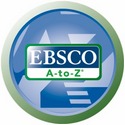Novosti
|
This journal is indexed in Scopus |
|---|
Year 2009 Vol. 17 No 1
DISCUSSION
PIMANOV S.I., MAKARENKO E.V.
GASTRODUODENAL ULCER TREATMENT REGARDING THERAPEUTIST POSITION
There are two tendencies in the conservative therapy of the gastroduodenal ulcers. The first one is an anti-secretory therapy which permits to achieve ulcer reparation or to prevent ulcer formation while taking antacid preparations. During the period of ulcer treatment a patient has to take inhibitor of the protonic pump in the standard dosage. The second tendency in the treatment of gastroduodenal ulcers implies eradication of Helicobacter pylori strictly according to the definite rules. In case of successful eradication one may observe decrease in frequency of ulcer recurrence as well as of ulcerous bleedings and perforations. Also positive changes of the functional and morphological characteristics of the stomach mucous membrane are registered: the level of serumal gastrin-17 decreases, inflammatory and atrophic changes in the stomach mucous membrane also reduce.
One more actual cause for ulcer forming is intake of aspirin and of non-steroid anti-inflammatory preparations. In case of ulcer anamnesis or presence of risk factors a patient should receive the inhibitor of the protonic pump in the standard dosage during the whole period of aspirin or non-steroid anti-inflammatory preparations intake (days or years).
- Current concepts in the management of Helicobacter pylori infection – The Maastricht 2-2000 Consensus Report / P. Malfertheiner [et al.] // Aliment. Pharmacol. Ther. – 2002. – Vol. 16. – P. 167-180.
- Current concepts in the management of Helicobacter pylori infection – The Maastricht III Consensus Report / P. Malfertheiner [et al.] // Gut. – 2007. – Vol. 56. – P. 772-781.
- Gisbert, J. P. Systematic review and meta-analysis: levofloxacin-based rescue regimens after Helicobacter pylori treatment failure / J. P. Gisbert, F. De La Morena // Aliment. Pharmacol. Ther. – 2006. – Vol. 23. – P. 35-44.
- Пиманов, С. И. Что происходит после эрадикации Helicobacter pylori: ожидаемые, доказанные и спорные эффекты / С. И. Пиманов, Е. В. Макаренко, Ю. И. Королева // Рос. журн. гастроэнтерологии, гепатологии, колопроктологии. – 2007. – Т. 17, № 1. – С. 48-55.
- Alteration of histological gastritis after cure of Helicobacter pylori Infection / M. Hojo [et al.] // Aliment. Pharmacol. Ther. – 2002. – Vol. 16. – P. 1923-1932.
- Helicobacter pylori eradication improves gastric histology and decreases serum gastrin, pepsinogen I and pepsinogen II levels in patients with duodenal ulcer / S. Pimanov [et al.] // J. Gastroenterol. Hepatol. –2008. – Vol. 23. – P. 1666-1671.
- Asia Pacific consensus guideline on gastric cancer prevention / K. M. Fock [et al.] // J. Gastroenterol. Hepatol. – 2008. – Vol. 23. – P. 351-365.



























